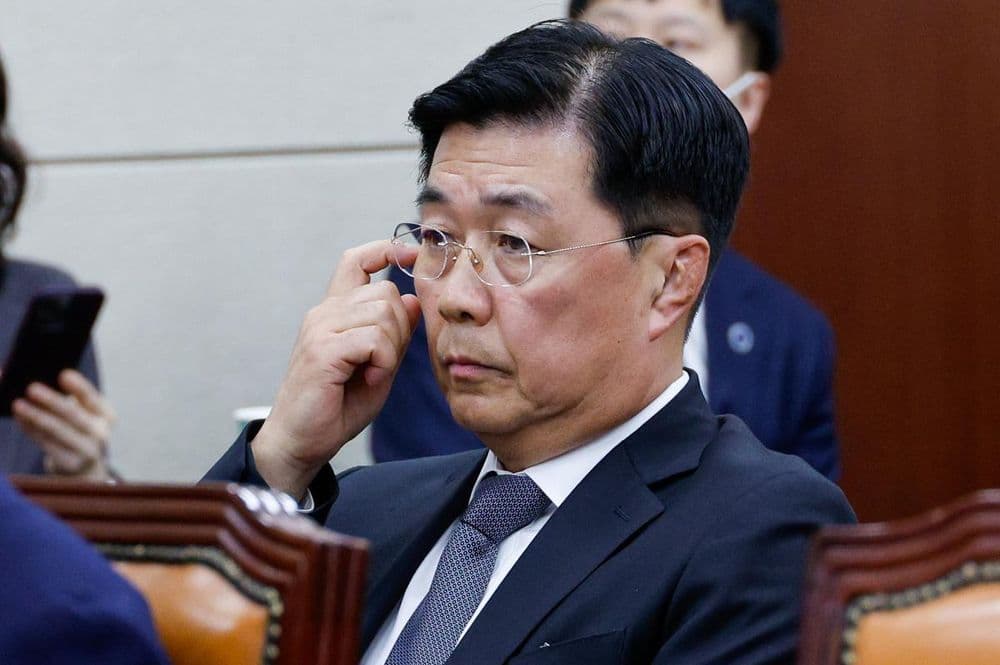Actress Lee Ji-ah: Apologies and Distance

The renowned South Korean actress Lee Ji-ah, 46, has been embroiled in a controversy related to her grandfather and pro-Japanese actions during the occupation of Korea. In an official statement issued on February 21, 2025, Lee Ji-ah addressed the situation, apologizing for her grandfather's actions and clarifying her position regarding current family conflicts.
Apologies for grandfather's actions
Lee Ji-ah expressed her deep regret for the actions of her grandfather, Kim Soon-heung, during the Japanese occupation period. The actress stated that she had no knowledge of these actions while growing up, as her grandfather died when she was just two years old. It was in 2011 when she first learned about the controversy through a press article. Since then, she has investigated the matter by visiting the National Issues Research Institute on several occasions to verify the facts. Lee Ji-ah acknowledged having confirmed the records of her grandfather's donations and emphasized that such actions cannot be justified under any circumstances, even considering the historical context of the time.
Family estrangement and inheritance conflicts
In her statement, Lee Ji-ah also addressed rumors about family conflicts related to inheritance. The actress revealed that she has cut ties with her parents for more than a decade, stating that she became independent at 18 and has not received any financial support from them since. Lee Ji-ah assured that she has no knowledge of nor is she involved in the current legal disputes over land property valued at 35 billion won (approximately 26 million dollars). These disputes involve her father and uncles, who are sons of Kim Soon-heung.

Call for property return
Lee Ji-ah called for the return of properties acquired during the Japanese occupation period. Specifically, she mentioned that if the lands in Anyang, which are at the center of the current controversy, were acquired during that period, they should be returned to the state. This statement shows her clear stance on the need to rectify historical injustices related to pro-Japanese collaboration.
Clarifications about rumors
The actress also took the opportunity to clarify some rumors circulating online. She denied having made previous statements about her grandfather or having used family history to promote herself. Specifically, she debunked rumors claiming that she had expressed admiration for her grandfather, describing these claims as false and requesting that this misinformation be corrected.
Public reaction and ongoing controversy
Lee Ji-ah's statement has generated various reactions among the South Korean public. Many have praised her honesty and willingness to address such a sensitive and controversial topic. However, others maintain a critical stance, questioning why it took her so long to make this public statement. The controversy over pro-Japanese actions during the occupation remains a sensitive issue in South Korea, and public figures often face intense scrutiny when it is discovered that they have family connections to collaborators from the colonial era. Lee Ji-ah's case has revived debates about historical responsibility and how current generations should deal with the actions of their ancestors.
Impact on Lee Ji-ah's career
Although it is premature to determine the long-term impact this controversy will have on Lee Ji-ah's career, her transparent handling of the situation could help mitigate potential damage to her public image. The actress, known for her roles in popular dramas such as "The Penthouse: War in Life", has demonstrated her commitment to facing the past responsibly and has expressed her desire to continue her career with a renewed sense of historical responsibility. The South Korean entertainment industry and the general public will be watching closely how this situation unfolds and how Lee Ji-ah navigates these turbulent waters in the coming months.
Reflections on historical legacy in South Korea
Lee Ji-ah's case has revived broader discussions about how South Korea, as a society, should address its colonial past and the actions of those who collaborated with the Japanese regime. Many South Koreans see this incident as an opportunity to reflect on the importance of historical education and the need for open dialogue about the darker aspects of the country's history. Some experts suggest that cases like this could lead to a more thorough review of properties and wealth accumulated during the colonial period, with potential long-term legal and social implications.
Conclusion
Lee Ji-ah's brave decision to publicly address this sensitive issue marks a significant moment both in her personal career and in the public discourse on colonial heritage in South Korea. Her call for the return of properties acquired during the occupation and her distancing from current family conflicts demonstrate a mature and responsible approach to a complex situation. As South Korean society continues to grapple with the echoes of its colonial past, cases like Lee Ji-ah's serve as catalysts for important conversations about historical responsibility, forgiveness, and reconciliation. Time will tell how this controversy will affect the actress's career in the long term, but her handling of the situation so far has been widely seen as a positive step toward transparency and accountability in the public sphere.
Discover More

The Hong Jang-won Scandal
Hong Jang-won, former deputy director of South Korea's National Intelligence Service, is at the center of a political controversy. His statements about an alleged mass arrest plan have shaken the political landscape.

YouTuber Gujeyeok: 3 Years in Prison
The famous YouTuber Gujeyeok was sentenced to 3 years in prison for extorting Tzuyang. The case has generated significant controversy in South Korea and reflects the dangers of cyberbullying.